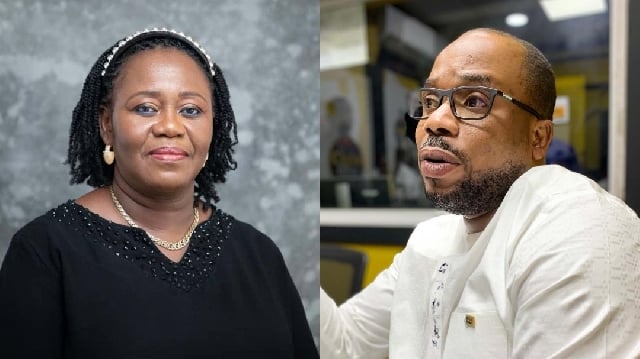The suspension of Chief Justice Gertrude Torkornoo has ignited a political firestorm in Ghana, with accusations of executive overreach and counter-accusations of hypocrisy dominating the discourse. At the center of this controversy is Mr. Benjamin Kofi Quashie, Chairman of the Council of Elders of the National Democratic Congress (NDC) in South Africa, who has vehemently defended the actions of President John Dramani Mahama while placing the blame squarely on the shoulders of former President Nana Addo Dankwa Akufo-Addo. Quashie argues that Akufo-Addo’s tenure was marked by a pattern of reckless disregard for judicial independence, creating the very conditions that led to the current crisis. He contends that the former president’s alleged interference in judicial appointments and dismissals of key public officials undermined the integrity of state institutions and set a dangerous precedent.
Quashie’s central argument revolves around the appointment of Chief Justice Torkornoo, which he characterizes as a flawed process that disregarded seniority and merit. He points to the bypassing of Justice Baffoe-Bonney, who was purportedly more senior, as evidence of Akufo-Addo’s manipulation of the judicial system. This act, according to Quashie, compromised the legitimacy of Torkornoo’s appointment from the outset and made her vulnerable to the current suspension. He further alleges that Torkornoo’s complicity in Akufo-Addo’s alleged machinations contributed to the erosion of judicial independence, suggesting she should have resigned rather than participate in what he perceives as a compromised system.
Furthermore, Quashie paints a picture of a judiciary operating under the shadow of political influence during Akufo-Addo’s presidency. He claims that court decisions became predictable, implying that the executive branch exerted undue pressure on judges. He cites the dismissal of four High Court judges and the removal of high-profile figures like former Electoral Commission Chairperson Charlotte Osei and Auditor-General Daniel Domelevo as examples of Akufo-Addo’s alleged authoritarian tendencies. These actions, according to Quashie, created a climate of fear and subservience within the judiciary, ultimately undermining its ability to function as an independent branch of government.
Quashie’s most pointed criticism, however, is directed at the perceived hypocrisy of those now criticizing President Mahama’s decision to suspend Chief Justice Torkornoo. He argues that the same individuals who remained silent during Akufo-Addo’s alleged transgressions are now vocally protesting the current suspension. He characterizes this outcry as politically motivated and lacking in principle, emphasizing that President Mahama acted within his constitutional authority and after due consultation with the Council of State. He insists that a prima facie case was established against the Chief Justice, justifying the suspension.
Quashie’s defense of President Mahama’s actions is rooted in his belief that the suspension was not only constitutionally sound but also necessary to restore the integrity of the judiciary. He contrasts Mahama’s approach with what he perceives as the destructive legacy of Akufo-Addo, whom he accuses of running state institutions “into the ground.” Despite acknowledging Akufo-Addo’s legal acumen, Quashie argues that the former president’s actions ultimately weakened the very foundations of democratic governance in Ghana.
In essence, Quashie’s narrative frames the current crisis as a consequence of past actions, portraying President Mahama’s decision as a corrective measure aimed at addressing the damage inflicted on the judiciary during Akufo-Addo’s tenure. He underscores the importance of upholding constitutional principles and due process, while simultaneously accusing those criticizing the suspension of applying a double standard based on political allegiances. This ongoing controversy highlights the deep political divisions within Ghana and the challenges facing the country’s judicial system as it navigates the complexities of executive power and judicial independence.


